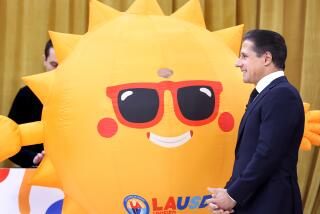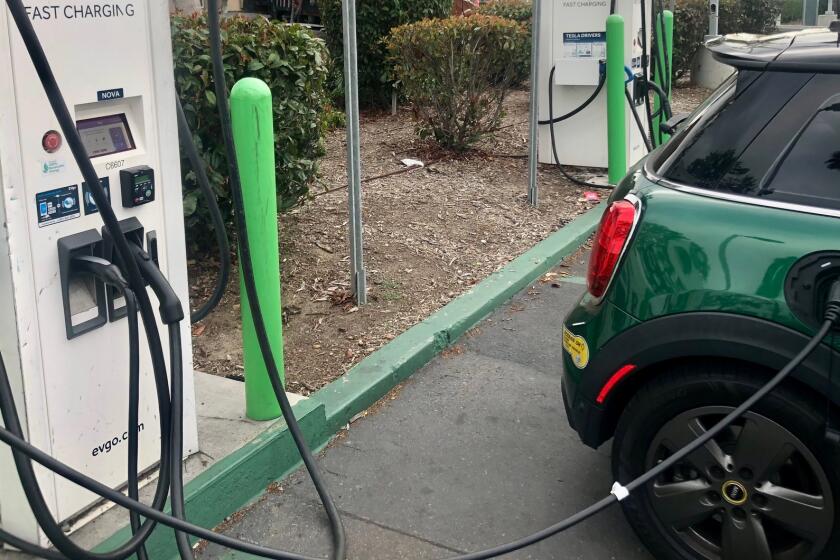Opinion: Are Deasy’s critics playing politics with iPads?
No one could blame John Deasy, superintendent of the Los Angeles Unified School District, for feeling under attack these days. The iPad program he trumpeted so enthusiastically, aiming to provide an iPad with related, interactive curriculum for every child and teacher in the district, has since been questioned, slowed down, opened to other devices and now is on hold altogether after the release of emails that make it appear as though Deasy and his top deputy may have had a too-close relationship with Apple and Pearson well before those two companies won out over other bidders.
Deasy has since come out, both in a lengthy memo to the board and in an interview with the online news organization L.A. School Report, complaining that his detractors are politically motivated.
Of course they are. Deasy’s critics have been having a field day with the iPad controversy. They have every motivation to make as big a deal as possible out of it.
That doesn’t mean the issue isn’t valid or that it should go away. Many people who generally support Deasy’s education agenda are nonetheless concerned about the iPad emails and whether they indicate a plan to write the requirements of the technology contract so that they would favor Apple and Pearson. So the emails might give purchase to Deasy’s political enemies, but that doesn’t mean the emails themselves are a merely political issue. People shouldn’t be jumping to conclusions that there was improper conduct; at the same time, it’s not a witch hunt, as Deasy characterized it, for people to have some deep concerns and to want those concerns addressed, thoroughly and transparently, by a third party.
Deasy’s memo to the board describes the emails as ordinary information-gathering regarding a possible pilot. That could well be true, but to a viewer not in the know on these kinds of things, the emails sound pretty enthusiastic for a potential buyer kicking the tires on some tablets and curriculum.
Deasy voiced frustration in both the letter and the interview, saying he felt the discussion had veered away from what was best for students, which was what he thought this was all about. And that’s the kind of “the best defense is a good offense” tactic that the superintendent shouldn’t adopt. Last time he was pushing for the iPad project, it was couched as a civil rights issue, as though anyone who raised questions about it was a racist. People who raise questions about these emails aren’t necessarily people who don’t care about students.
Deasy came in as a hard-charging reformer. He has staked out tough but generally worthy positions on what it will take to help kids who face intractable obstacles of poverty, hunger, language and so forth. But he has to have been aware from the start that this would make him a polarizing and thus politicizing force in the district.
That isn’t necessarily a bad thing; an element of impatience and headstrong action is required to break through the torpor that has long defined L.A. Unified. But it also requires having the thick skin to deal with criticism and the willingness to recognize the moments when critics have a point. Surely Deasy knew that if his opponents were provided with haystacks, they would make political hay, not just slink away and leave the educational field to him.
Follow the Opinion section on Twitter @latimesopinion
More to Read
A cure for the common opinion
Get thought-provoking perspectives with our weekly newsletter.
You may occasionally receive promotional content from the Los Angeles Times.











